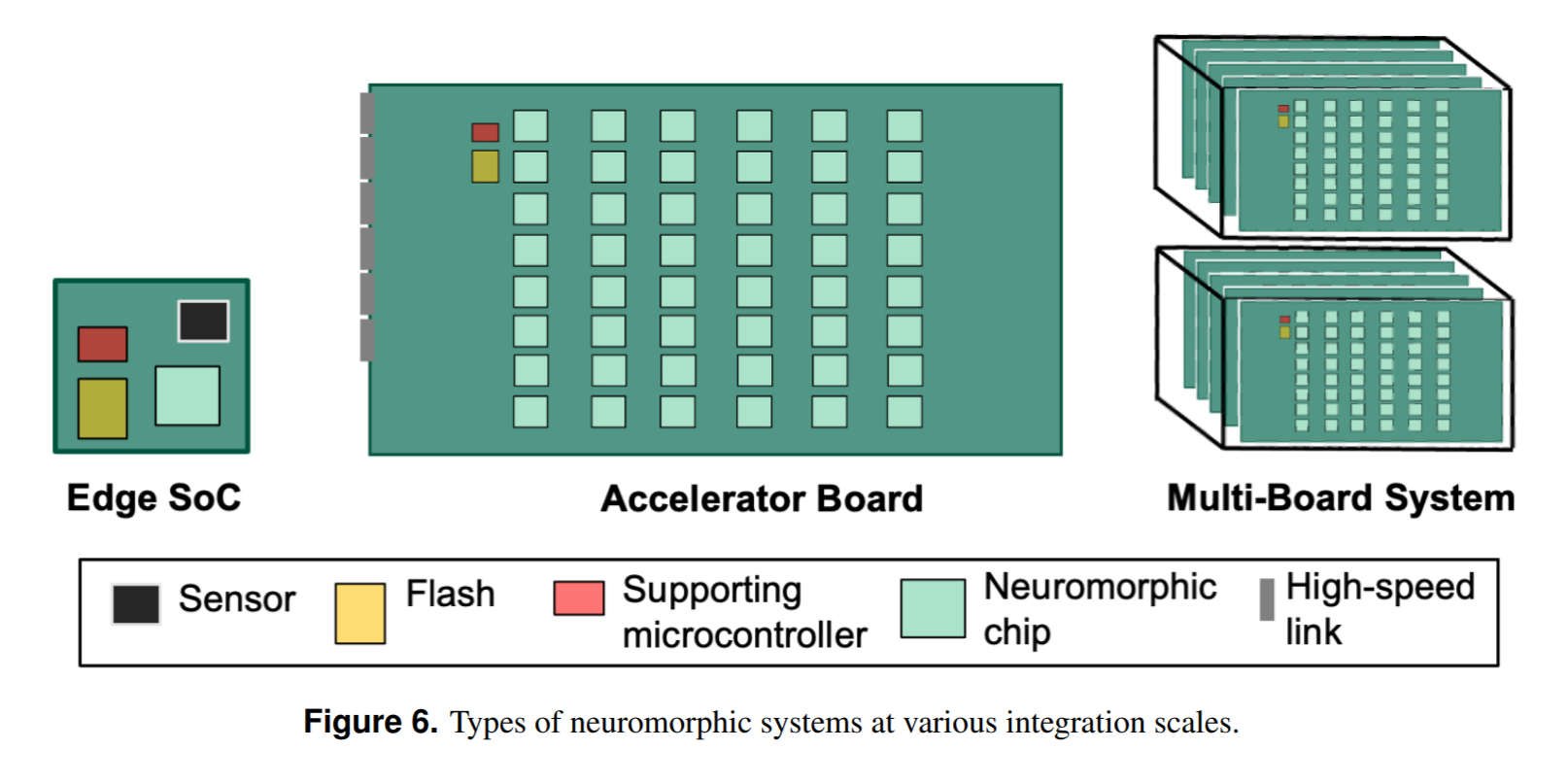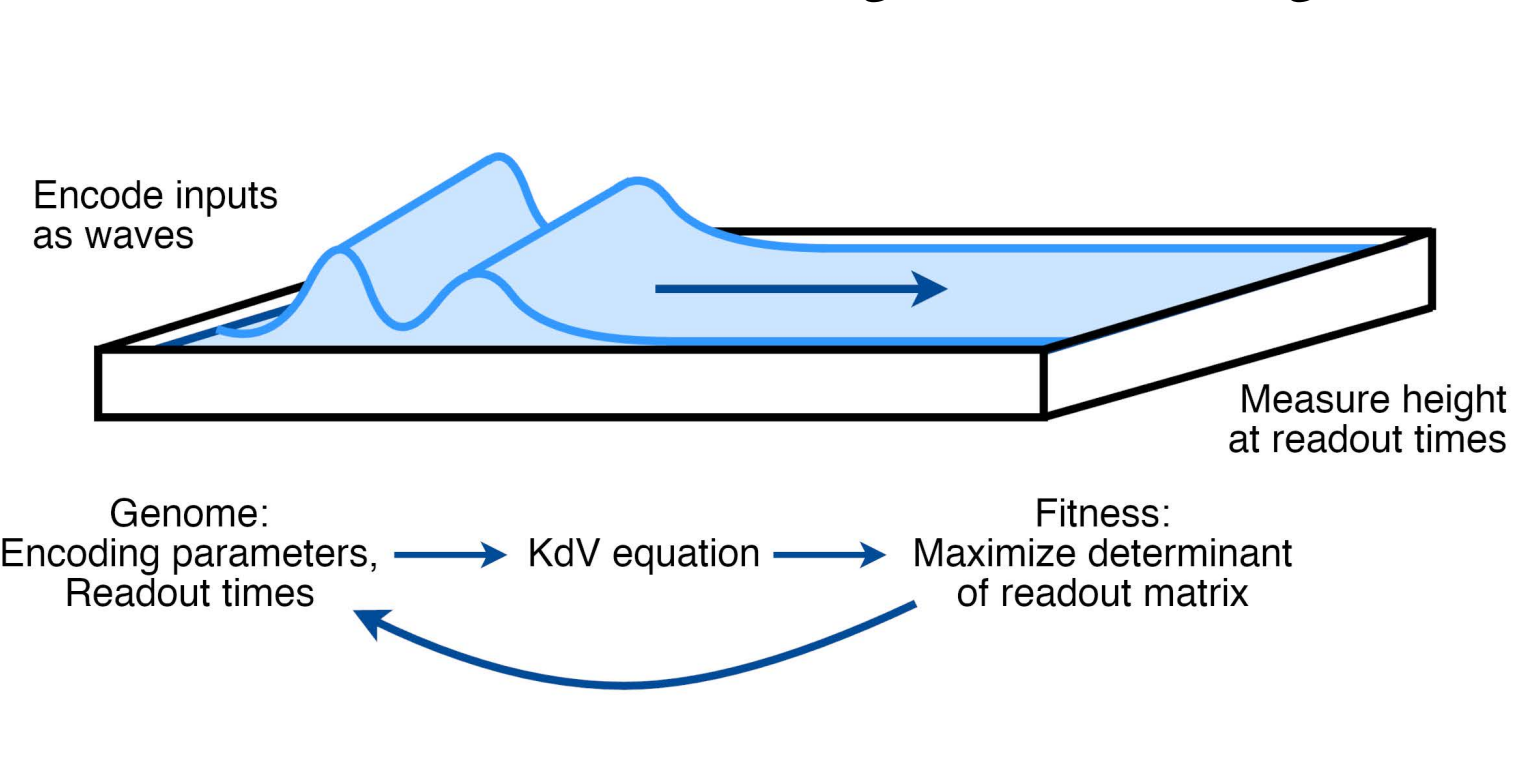publications
2024
-
 NeuroBench: A Framework for Benchmarking Neuromorphic Computing Algorithms and SystemsJason Yik, Korneel Van Berghe, Douwe Blanken, and 95 more authorsIn Under review , 2024
NeuroBench: A Framework for Benchmarking Neuromorphic Computing Algorithms and SystemsJason Yik, Korneel Van Berghe, Douwe Blanken, and 95 more authorsIn Under review , 2024Neuromorphic computing shows promise for advancing computing efficiency and capabilities of AI applications using brain-inspired principles. However, the neuromorphic research field currently lacks standardized benchmarks, making it difficult to accurately measure technological advancements, compare performance with conventional methods, and identify promising future research directions. Prior neuromorphic computing benchmark efforts have not seen widespread adoption due to a lack of inclusive, actionable, and iterative benchmark design and guidelines. To address these shortcomings, we present NeuroBench: a benchmark framework for neuromorphic computing algorithms and systems. NeuroBench is a collaboratively-designed effort from an open community of nearly 100 co-authors across over 50 institutions in industry and academia, aiming to provide a representative structure for standardizing the evaluation of neuromorphic approaches. The NeuroBench framework introduces a common set of tools and systematic methodology for inclusive benchmark measurement, delivering an objective reference framework for quantifying neuromorphic approaches in both hardware-independent (algorithm track) and hardware-dependent (system track) settings. In this article, we present initial performance baselines across various model architectures on the algorithm track and outline the system track benchmark tasks and guidelines. NeuroBench is intended to continually expand its benchmarks and features to foster and track the progress made by the research community.
2023
-
 Optimization of a Hydrodynamic Computational Reservoir through EvolutionAlessandro Pierro, Kristine Heiney, Shamit Shrivastava, and 2 more authorsIn Proceedings of the Genetic and Evolutionary Computation Conference , Lisbon, Portugal, 2023
Optimization of a Hydrodynamic Computational Reservoir through EvolutionAlessandro Pierro, Kristine Heiney, Shamit Shrivastava, and 2 more authorsIn Proceedings of the Genetic and Evolutionary Computation Conference , Lisbon, Portugal, 2023As demand for computational resources reaches unprecedented levels, research is expanding into the use of complex material substrates for computing. In this study, we interface with a model of a hydrodynamic system, under development by a startup, as a computational reservoir and optimize its properties using an evolution in materio approach. Input data are encoded as waves applied to our shallow water reservoir, and the readout wave height is obtained at a fixed detection point. We optimized the readout times and how inputs are mapped to the wave amplitude or frequency using an evolutionary search algorithm, with the objective of maximizing the system’s ability to linearly separate observations in the training data by maximizing the readout matrix determinant. Applying evolutionary methods to this reservoir system substantially improved separability on an XNOR task, in comparison to implementations with hand-selected parameters. We also applied our approach to a regression task and show that our approach improves out-of-sample accuracy. Results from this study will inform how we interface with the physical reservoir in future work, and we will use these methods to continue to optimize other aspects of the physical implementation of this system as a computational reservoir.1